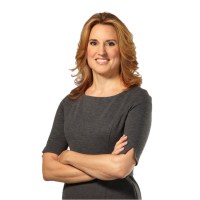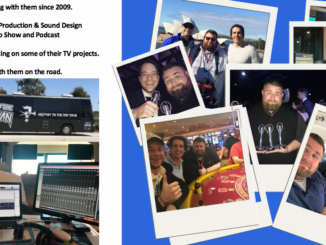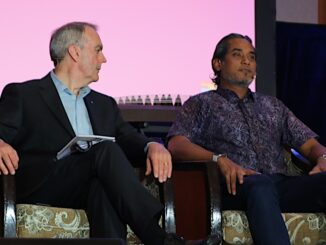“For the last 20 years people spoke to me as an elected representative, as a politician, now they talk to me as as a friend because they know that I’m on radio. That’s been transformational in my own life, because I hear things that I didn’t hear before.”Politician turned radio broadcaster and podcaster Khairy Jamaluddin spoke with Steve Ahern in a keynote session at RadioDays Asia 2024 in Kuala Lumpur. Better known as KJ, the former politician talked about how his political career has now transformed into a media career, and gave his views on social media regulation, the power of radio, the difference between radio and podcast content and his thoughts on media regulation:I’d been in politics for more than two decades, and I suppose the pivot towards media is something natural for politicians. I think a lot of politicians who either retire or are forced out, end up doing some form of broadcasting or media work, especially if they’re comfortable in front of the camera on on air.It’s to do with communicating ideas, a lot of us in the political world have done that throughout our careers.But I didn’t just move into a space that was already created, which was radio. Thanks to Nazri and everyone at Media Prima Audio for having me on radio, but also I am creating my own platform with a podcast… not many of us have been able to carve out a space or a platform that’s emerging or that’s new, and that’s what we’ve done on our podcast.I go on radio once a week, sometimes twice a week. Now it’s survey month I’m on radio on Mondays and Fridays. That bookends the week for me. On radio we don’t touch on policy or politics, [the show is] more a light touch on how people are doing, on lifestyle.Then I do my podcast once or twice a week and that’s heavy, long form. That’s one to one and a half hours. We deep dive into issues and of course we slice it up and we distribute it on on different platforms too.Steve: When you first were on air, I thought that you were the joke in a way, because you were a former politician and you had this team of people often making fun of you. You were happy with that, you played along. But in recent months, when I’ve been listening, I think you’ve learned how to give it back to them too, you seem more comfortable in the live radio medium now.KJ: Yeah. So for the context of those of you who are not Malaysians and for Malaysians who don’t listen to Hot FM, I joined an entrenched breakfast team… three very, very prominent radio personalities. So I came on as the fourth member and I think you’re right Steve, they were having fun with me. I think they were laughing at me at first, now, I hope that they’re laughing with me.It was uncomfortable because I came from a different world. I’d like to think that I have a sense of humor, but as a politician, coming from a world that’s highly, highly rigid, protocol based into something where every other sentence is a joke or a punchline, is was difficult. I was a fish out of water, but I think I’m holding my own now.Steve: When you left politics your former party boss didn’t want to see your face anymore after they expelled you from the party, but you’ve been so commercially successful that your face is on a lot of advertising and products and billboards now.KJ: Revenge is so sweet, right? Not only was I sent to an unwinnable seat at the last election, after that I was expelled from my political party, a party which I dedicated 25 years of my life to. When you’re expelled from your party, obviously the party leadership wants you to fade away into the night and, and die a political death. But radio and podcasts have given me a second lease of life.When I was a politician I had tpo pay people to put my face on billboards, now I have the opportunity to represent brands now other people put my face on billboards to represent their brands, and I get paid for it… I can imagine my ex-party boss wasn’t too happy about it. This is a new world to me. This is your world. I used to do media work as a politician because that was my job, my public service. Now I get paid for it… I didn’t know you guys made so much money!When I started my podcast it took about 30 episodes before we got our first inquiry. They came to me and said do you have a rate card? I was like, what the hell is a rate card? I didn’t even know what a rate card was. Once I figured out what a rate card was, then we I got a friend to come in to become the business manager for our podcast and we had to start pricing ourselves accordingly.Steve: Let’s talk about the podcast industry and how it’s growing here in Malaysia. You were an initiator of a recent Podfest, which could, over time, turn into some kind of podcast industry leadership group.KJ: Yeah. In media, we don’t like things to be highly regulated, but we do understand that there has to be some form of regulation, if only to put in certain guard-rails so that the harmful aspects of fake news, of cyber bullying, of online grooming can be curbed. So podcasts in Malaysia fall under the unregulated media space right now. I believe eventually at some point, the regulators will come knocking on the door of this emerging platform. Podcasts are growing fast and sometimes eclipse traditional platforms like radio, so eventually the regulators will come to us and say, hey, we need to make sure that some of this is regulated. So I thought rather than waiting for the regulators to come, I’d reach out to some of the other podcasts in Malaysia to have a podfest [and] workshops. It’s resulted in us forming this loose network… and perhaps we can have a united and common stand when it comes to guard-rails and regulations.Steve: You have the experience on both sides of the fence as a politician and a minister, so you understand that. Let me talk about something that’s current at the moment. Just this last month the Malaysian government has started to bring in regulations on social media platforms. We’re not talking podcasts, we’re talking the big picture controversy that all societies are facing now, the power of social media platforms that are pretty much unregulated. But the big platforms are fighting back, they’ve formed a group called AIC here. What are your thoughts on that from both sides of the fence?KJ: I think it’s to be expected that the big online service platforms are pushing back against regulation because they want to operate in an environment where, as you said, Steve, it’s international, they’re cross-border, they’re not accountable for a lot of things that they put up on their platforms.For them, the mantra is, of course, self-regulation. But, on the other side, and I speak as somebody formerly from government but now a content creator, I understand where the government is coming from because there is tremendous harm that is being perpetrated online, whether it’s financial scams, cyber bullying, whether it is grooming, whether it’s child pornography.These things are very difficult to regulate when you have online service platforms… the regulation that has been suggested by the government is where there are at least 8 million Malaysian users, so you’re talking about Instagram, X, WhatsApp messaging platforms and the others where it’s very, very difficult to hold the online service platform company to account. I think what the government is doing now is understandable and I support this.I want to make sure that the guardrails are fair and do not curb fair criticism. I support it for the right reasons, but I want to make sure that these guardrails and the regulation does not stifle legitimate criticism and legitimate discussion. That’s the fine line that the regulators will have to walk.A lot of these companies say that they are a conduit for neutral information. I don’t think this is true. I think there is a black box algorithm that powers a lot of these things, which is unaccountable, we do not know how that algorithm is created and what it perpetuates. If you look at some platforms, most notoriously X or Twitter, it leads to highly, highly polarized echo chambers… a lot of it is just blatantly either racist or inciting in some cases racial hatred por scams. Secondly, when it comes to self-regulation, they’re not doing that.Steve: The thing that worries me is that the algorithm’s primary purpose is to keep people on that platform for longer. If you see the same stuff, then, after 3 or 4 videos or whatever, it’s like, I’m over it, but if it gets more extreme or more radical or whatever, then it keeps you, hooked. That’s the, the primary purpose. It can work very badly against social cohesion and social harmony, even what they claim that they championed free discussion it polarizes views.KJ: It’s only free discussion if the black box of that algorithm is not doing what it’s doing. But if what it’s doing is self-reinforcing a certain echo chamber and polarizing and radicalizing people’s views, then I don’t think you’re really a conduit for free discussion.Steve: If you were back into politics and the Minister for Communications would you mandate that they make their algorithm public?KJ: That requires a coordinated action from different countries. It’s very difficult for one jurisdiction to try to force these companies to open up the source code for the algorithms and all that. And I don’t even know if that’s technically possible, but I would certainly sit down with the industry to discuss the guard-rails. And I think the government here is doing that right now. So in principle, I support it.Steve: The other element to that, of course, is that those big companies are taking money out of the advertising agencies in this country, but not necessarily returning it in terms of content or news production, whereas licensed broadcasters and local production companies are doing exactly that.KJ: I think this is a challenge that all of us face, right? I’m not here to bash the big tech companies because we rely on them. I post my stuff on these platforms every week, every day. But their business model is highly extractive in a sense that they take a lot of value out of the local content creation. We’re creating a lot of content. They use a lot of that content without paying for it, without necessarily valuing it the right way. I think this is something that a lot of jurisdictions, not just Malaysia, are facing… there has to be a reckoning. I’m not here to declare war on the big tech companies, but I do think that it’s extractive at the moment.Steve: If you were Communications Minister, is there anything else you would do for the industry?KJ: I think the one thing that we need is capacity building… it could be a shared responsibility between government and industry. We could do a lot more with capacity building because everyone now wants to be a YouTuber. Everyone now wants to be a podcaster… we bootstrap our way to doing it. But I think we would elevate the entire scene by having a lot of support in terms of technical capacity building, how to do it properly. I think there is a role for industry associations and government in order to elevate the the standards of these new platforms.Question from the floor: How do you shift your mindset into entertainment in your new role as an announcer? There might be times when political issue comes up, but I guess you can’t always comment on them.KJ: Yeah, that’s a great question. I’m fortunate in a sense that I operate both in commercial radio as well as podcasts. If I didn’t have my podcast, then I’d be really frustrated and I may say something political on radio, but because I have my podcast, I know to keep my mouth shut when I’m on radio. So I have my outlet and I’m very, very careful, not because I want to censor myself, but because I understand the remit and the mandate for commercial radio is different. I’m there to make people happy on a Monday morning… I’m there to dance on TikTok. Whatever. I have no dignity left.My political brain is always operating, but in a way that I know when to say what and what to say when. Of course, my podcast is different. That’s when I go all out politically. We’ve turned politics into entertainment and there are a lot of people doing that with political podcasts. They’ve turned politics into entertainment. They’ve turned history into entertainment. Some of my favorite podcasts are ‘The Rest is history,’ ‘The Rest is Politics,’ ‘Empire.’ We’ve been able to turn politics into entertainment, where people are actually willing to listen to us for 1.5 hours, two hours talking about politics. It’s not just entertainment, but it’s bringing my old life into entertainment.Steve: I think that’s a really important thing because people who might find traditional politics boring will turn off. But if you make them interested, then they’ll engage with politics, and society will be better all around.KJ: One of the most common comments that I get on the street is that people come up to me and say, look, I really didn’t care about politics before, but because of your podcast I’m into politics… to make politics accessible has been a great privilege for us.Question from the floor: You see the connection with the people and how radio has really opened your eyes on views on that. What are your thoughts on that?KJ: One key takeaway from radio that I get outside of the political world is that messages need to be simple and relatable. And I think that’s the great power of radio… it speaks to you in a way that that makes you feel comfortable. Sometimes in politics we don’t do that… for the last 20 years people spoke to me as an elected representative, as a politician, now they talk to me as as a friend because they know that I’m on radio. That’s been transformational in my own life, because I hear things that I didn’t hear before.See full coverage of RadioDays Asia 2024 on radioinfo.asia. […]






